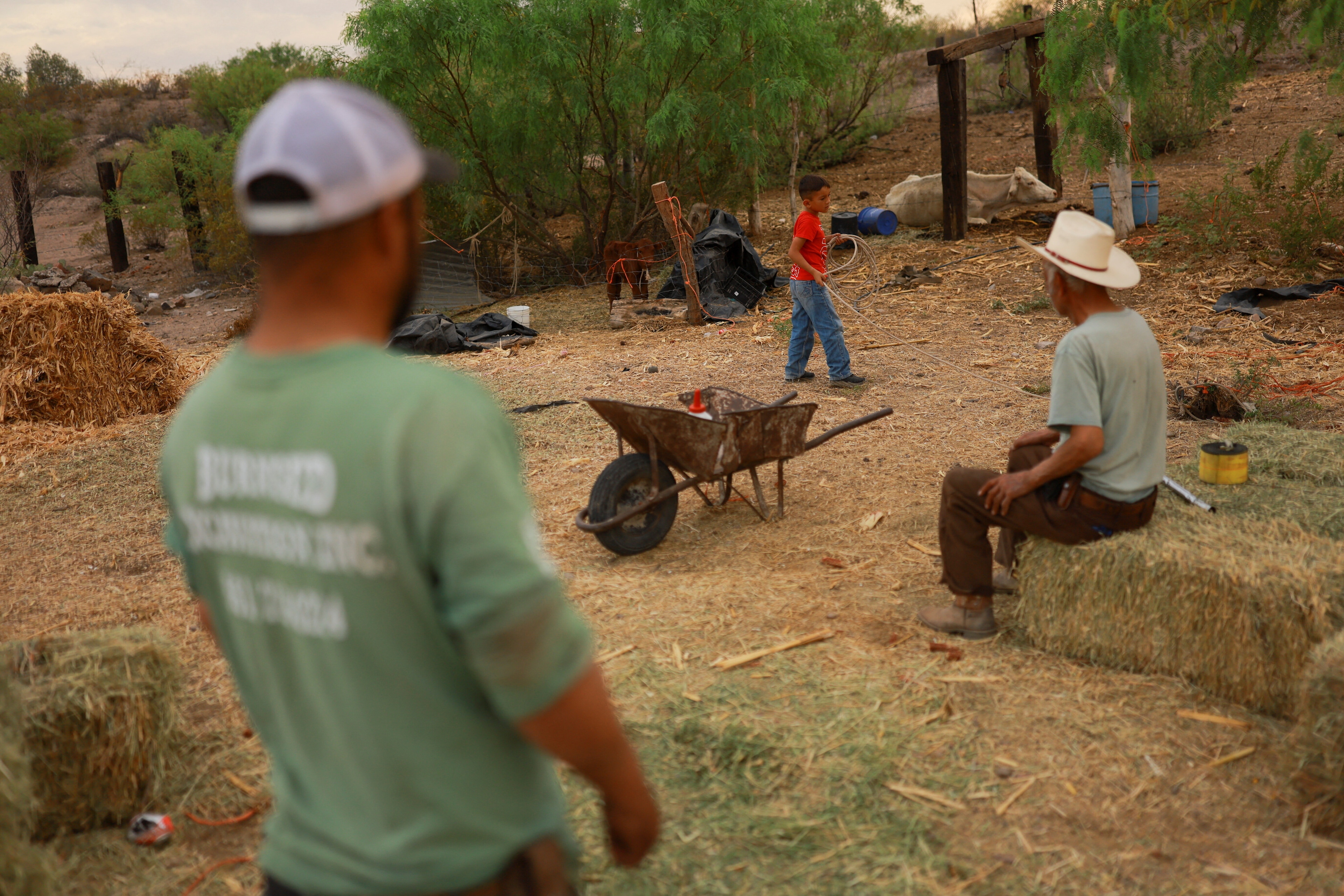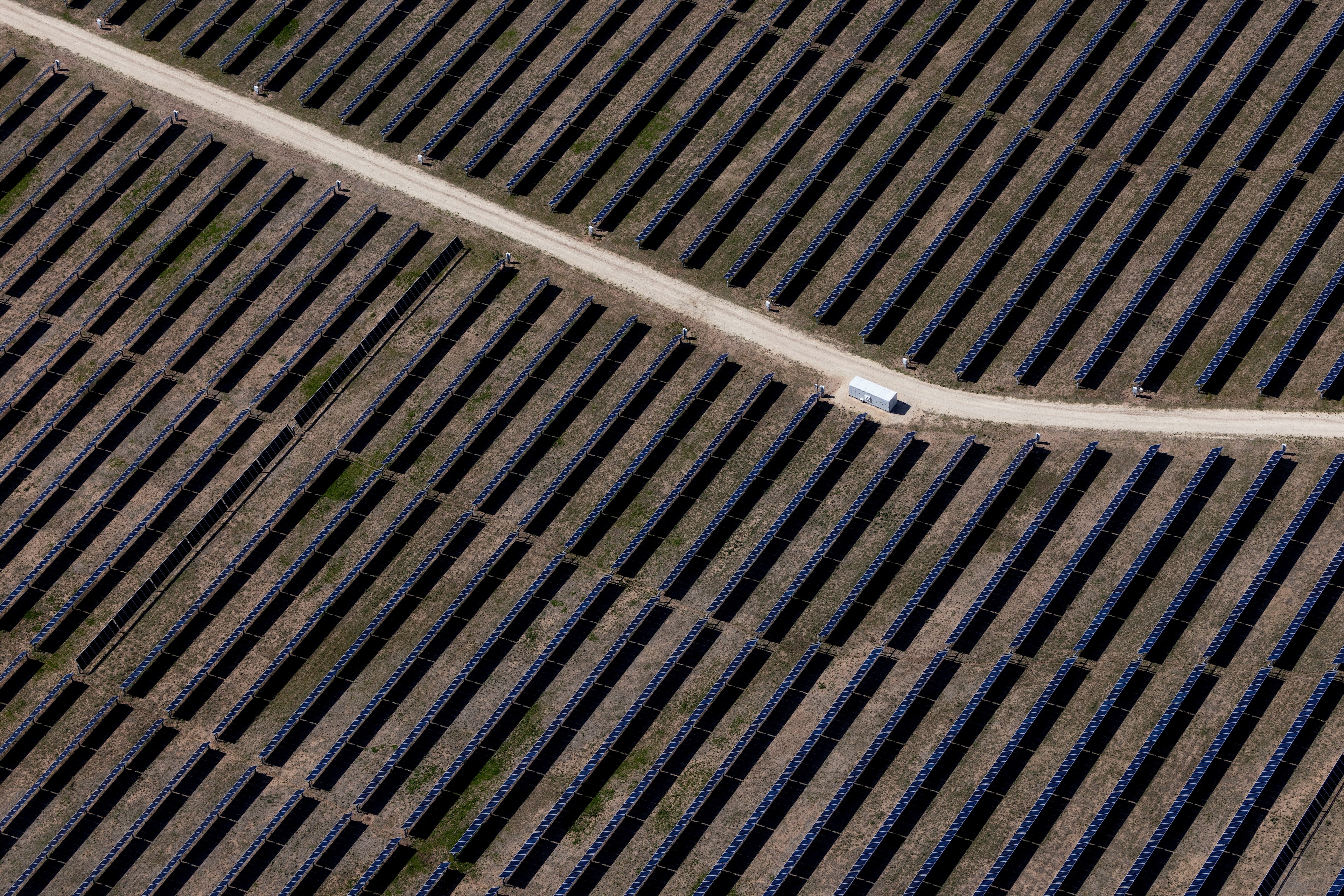'Fake meat' is going to be worth $140 billion by 2030 - would you give it a try?

Solein is made by putting microbes into a liquid and feeding them hydrogen and carbon dioxide.
Image: Solar Foods
Stay up to date:
Food Security
- The alternative protein market is expanding rapidly, and could reach $140 billion within the next 10 years
- Numerous companies are now entering the market, hoping to take advantage of increased consumer interest in sustainable food production
- Critics have accused 'fake meat' of being overly processed and full of chemicals
It may sound like science fiction, but in a few short years the family dinner table may be laden with steak from a printer and other proteins produced from air, methane or volcanic microbes.
With the explosive success of vegan beef and burger substitutes developed by Beyond Meat and Impossible Foods, the alternative protein sector just keeps growing.
According to investment bank Barclays, alternative meat sales could reach $140 billion - or 10% of the global meat industry - within a decade, or a 10-fold increase from current levels.
A new generation of products in the works melds cutting-edge technology with age-old fermentation processes to turn otherwise harmful or everyday elements into essential food ingredients, with the aim of reducing agriculture's massive carbon footprint.
According to the United Nations, agriculture, forestry and other land use activities accounted for 23% of total net manmade greenhouse gas emissions from 2007 to 2016, soaring to 37% when pre- and post-production activity were factored in.
Livestock meanwhile are responsible for about 14.5% of global greenhouse gas emissions, according to the U.N. Food and Agriculture Organization.
Enter Solar Foods, a Finnish company working on an edible protein powder called Solein which uses water, air and renewable electricity as a way to separate food production from agriculture.
"You avoid land use impacts like clearing forests for agriculture, use of pesticides and use of fertilisers that release greenhouse gases and so on," co-founder and CEO Pasi Vainikka told the Thomson Reuters Foundation.
Solein is made by putting microbes into a liquid and feeding them small bubbles of hydrogen and carbon dioxide, a process similar to making beer or wine, apart from the lack of grapes or grains, Vainikka explained.
As the liquid thickens, it is dried into a very fine powder which is about 65% protein and tastes much like wheat flour.
In September, Solar Foods struck an agreement with Nordic food company Fazer to develop products using Solein, which can be used in existing plant-based products or future offerings such as lab-grown meat.
Solein will cost about €5 per kilo ($2.50 a pound) to produce and will hit the market by 2021, Vainikka said.
"There's a lot of climate anxiety," he said. "And people are looking for hope and solutions and they're happy to see companies like ours, so that's encouraging."
Fermentation, fermentation, fermentation
Another company tackling agriculture's emissions through fermentation, Bangalore-based String Bio, is working to convert methane, a greenhouse gas more potent than carbon dioxide as it traps 28 times more heat, from waste and natural sources into protein powder - initially for animals.
"We said this is probably the best impact we humans can have in this world, where we take something that we don't need for the environment and convert it into something we do need," said Vinod Kumar, who with his wife Ezhil Subbian set up the company.
Such environmental considerations, along with concerns over animal welfare and human health, have driven both demand and supply of alternative proteins, said Dan Altschuler Malek, Managing Partner at investment firm Unovis Partners.
Just 10 years ago he said retailers saw alternative proteins as a risky bet, but "today they realise there is a huge demand for all these products."
Unovis manages New Crop Capital, a fund that invests exclusively in start-ups developing meat, seafood and dairy replacements, including Beyond Meat.
New Crop has also invested in Nova Meats, a Spanish company that uses a special 3D printer to produce steak that can mimic the taste and texture of meat.
The printers produce three-dimensional vegan steaks using cartridge-style syringes which extrude plant-based proteins.
Volcanoes and tiny organisms
Some have criticised plant-based alternatives flooding store shelves as highly processed and high in sodium, and Harvard scientists recently questioned their role in a healthy diet.
Others such as the Center for Consumer Freedom, which is backed by the food and beverage industry, have launched campaigns decrying so-called "fake meat" as loaded with chemicals.
Proponents counter that burgers have always been laden with fat and sodium and were never exactly considered health food.
The new generation of proteins are also less processed, said Thomas Jonas, CEO of Sustainable Bioproducts whose protein is based on microbes found in volcanic hot springs at Yellowstone National Park.
In that barren, other-worldly and dangerous landscape, researchers "discovered a bunch of life forms that across millennia evolved to survive in this environment," he said.
Having raised $33 million in February, the company plans to produce "a hamburger equivalent" next year through a "novel fermentation" of the microbes.
At full capacity its 35,000-square-feet (3,250 square metres) plant in Chicago could produce burgers equivalent to those made from cows grazing on 15,000 acres (6,100 hectares) of land, Jonas said.
For investors like Altschuler Malek, alternative proteins are all about options for consumers, with three essential caveats:
"It needs to taste great, it needs to meet certain price points and it needs to be able to be manufactured in large volume," he said.
"There are amazing chefs all over the world that are doing plant-based products. But If you cannot convert that into mass manufacturing it's really hard to see how that can actually make a change in the world."
It is also an opportunity for a radical shift in agriculture which, despite incremental improvements, has remained much the same for centuries, Jonas said.
"Fundamentally we are surviving on this planet based on an agricultural system that has barely changed in the past 11,000 years... when we domesticated a handful of plants and animals."
"New technologies are really giving us tools for a second domestication - things that we didn't even know were there."
Don't miss any update on this topic
Create a free account and access your personalized content collection with our latest publications and analyses.
License and Republishing
World Economic Forum articles may be republished in accordance with the Creative Commons Attribution-NonCommercial-NoDerivatives 4.0 International Public License, and in accordance with our Terms of Use.
The views expressed in this article are those of the author alone and not the World Economic Forum.
Forum Stories newsletter
Bringing you weekly curated insights and analysis on the global issues that matter.
More on Food and WaterSee all
Jose Ignacio Galindo and Nicolas Wertheimer
July 24, 2025
Arunabha Ghosh and Jane Nelson
July 22, 2025
Tom Crowfoot
July 8, 2025
Duncan Wood
July 8, 2025




